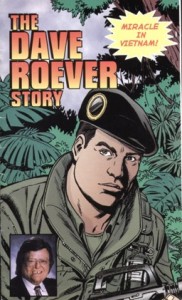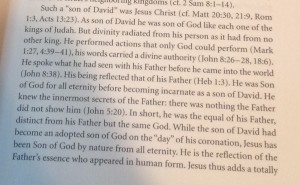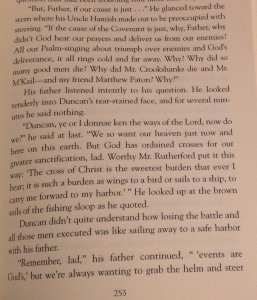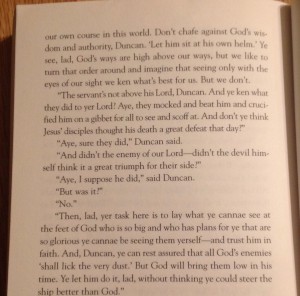My poem of the week this week is a great call to perseverance, holding to faithfulness despite the immediate outcome. This, especially the last two stanzas, is a good word.
OH IT IS HARD TO WORK FOR GOD
Oh, it is hard to work for God,
To rise and take His part
Upon this battlefield of earth,
And not sometimes lose heart!He hides Himself so wondrously,
As though there were no God;
He is least seen when all the pow’rs
Of ill are most abroad.Ah, God is other than we think,
His ways are far above,
Far beyond reason’s height, and reached
Only by childlike love.Workman of God! O lose not heart,
But learn what God is like,
And in the darkest battlefield
Thou shalt know where to strike.Then learn to scorn the praise of men,
And learn to lose with God;
For Jesus won the world through shame,
And beckons thee His road.For right is right, as God is God,
And right the day must win;
To doubt would be disloyalty,
To falter were to sin.– Frederick W. Faber, Jesus and Mary, 1849. Several variants of these lyrics have been published; this version appeared in Hymns Ancient and Modern.
 I was richly blessed today attending the funeral of Dr.Louise Bentley, an amazing professor whom I was fortunate to have while I was a student at Union. Even her requests for how the funeral would be done reflected her deep desire to glorify God. Her children spoke of her love for God, them, words and the Psalms, reading her favorite Psalm (16) and her pastor preaching from her life verse (Psalm 34:3).
I was richly blessed today attending the funeral of Dr.Louise Bentley, an amazing professor whom I was fortunate to have while I was a student at Union. Even her requests for how the funeral would be done reflected her deep desire to glorify God. Her children spoke of her love for God, them, words and the Psalms, reading her favorite Psalm (16) and her pastor preaching from her life verse (Psalm 34:3).




 One of our favorite sites in Scotland is Dunnottar Castle. The area is stunningly beautiful and it’s history is rich. One aspect of its history is the fact that Covenanters were imprisoned here because of their allegiance to Christ (see photo below). Shep Shepherd recently pointed out to me this wonderful poem which reflects on the suffering of the Covenanters here.
One of our favorite sites in Scotland is Dunnottar Castle. The area is stunningly beautiful and it’s history is rich. One aspect of its history is the fact that Covenanters were imprisoned here because of their allegiance to Christ (see photo below). Shep Shepherd recently pointed out to me this wonderful poem which reflects on the suffering of the Covenanters here.